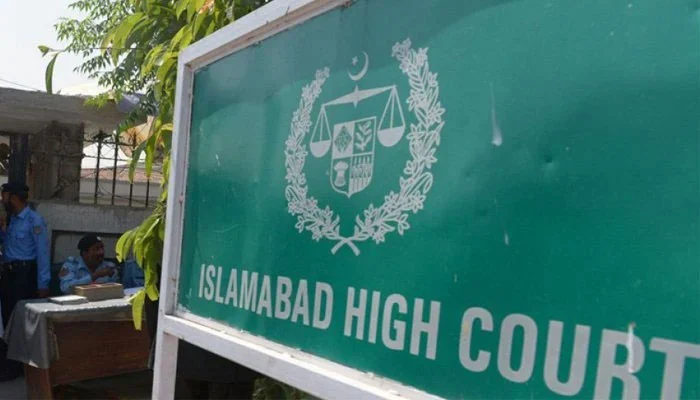In Islamabad, the Islamabad High Court (IHC) declared the arrest of Pakistan Tehreek-e-Insaf (PTI) Chairman Imran Khan lawful in the Al-Qadir Trust case on Tuesday.
IHC Chief Justice Aamer Farooq, who had earlier questioned the Rangers’ decision to arrest Khan at the court premises, announced the reserved judgment. The IHC also served notices to the Islamabad Inspector General of Police and the Interior Secretary for contempt of court.
Chief Justice Farooq instructed the high court registrar to file a First Information Report (FIR) concerning the arrest circumstances, which involved the mistreatment of nearby lawyers and damage to the court building. The registrar was also directed to conduct an inquiry and submit a report by May 16.
Khan, who faces numerous cases since being ousted last year, was arrested at the high court while appearing for two cases. His arrest occurred after months of political turmoil and shortly after the military criticized the former international cricketer for accusing a high-ranking officer of plotting to kill him.
Protests by PTI supporters erupted across major cities, including Islamabad, Lahore, Peshawar, and Karachi, resulting in injuries and damage to public property. If convicted, Khan could be barred from holding public office, excluding him from elections later this year.
Following Khan’s arrest, Chief Justice Farooq took notice and summoned the Islamabad Inspector General of Police and the Interior Secretary. He also ordered the Additional Attorney General to appear before the court and find out who was responsible for the arrest.
During the hearing, the court questioned the legal basis for Khan’s arrest and summoned the National Accountability Bureau (NAB) Director General and Prosecutor General.
NAB Deputy Prosecutor General Sardar Muzaffar Abbasi informed the court that the arrest warrant issued for Khan on May 1 was valid, and the Ministry of Interior was requested to comply. He also admitted that public property was damaged and lawyers were manhandled during the arrest.
Chief Justice Farooq expressed displeasure over the arrest’s execution, emphasizing the need for proper methods. Abbasi explained that Khan had resisted arrest multiple times in the past and failed to appear before the anti-corruption watchdog for inquiries.
Khan’s counsel, Haris, argued that the arrest was a violation of fundamental rights and an attack on judicial independence. He requested the court to declare the detention illegal and order Khan’s release. In response, Abbasi stated that the inquiry in the case became an investigation on April 28 and that Khan did not appear before the bureau for investigation.
IHC Chief Justice Farooq noted that if any illegality was found in the arrest warrant compliance, an order for the former premier’s release would be issued. The verdict on the matter was subsequently reserved.


